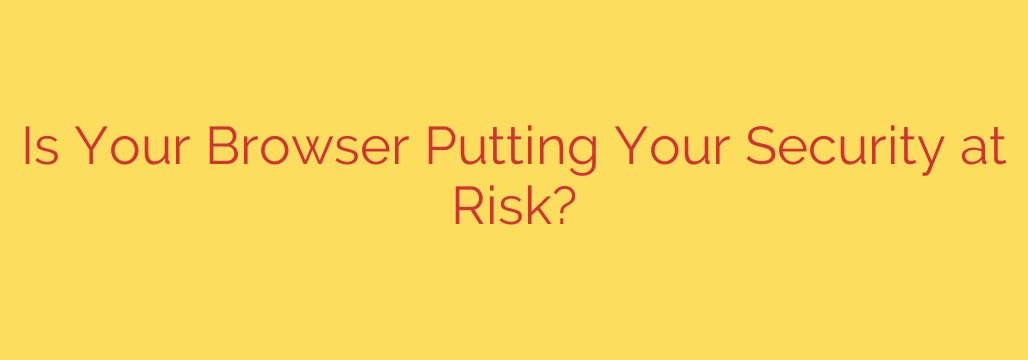
Your web browser is arguably the most critical piece of software on your computer or phone when it comes to online security. It’s your primary window to the vast and often unpredictable internet. Because of this central role, it’s also a significant potential vulnerability that malicious actors frequently target. Understanding the risks and taking proactive steps is essential to protecting your personal data and online identity.
One major area of concern is how browsers handle cookies and tracking technologies. While many cookies are necessary for website functionality, others are designed to track your online behavior across different sites, creating a detailed profile that can be used for targeted advertising, but also potentially exposing sensitive information. Coupled with browser fingerprinting techniques, it’s becoming increasingly difficult to browse the web anonymously without specific protective measures.
Furthermore, browsers themselves can have security vulnerabilities. These are flaws in the software code that hackers can exploit to gain unauthorized access to your device or data. Software companies regularly release updates to patch these vulnerabilities. Failing to keep your browser updated is like leaving a back door open for cybercriminals. Running outdated versions leaves you exposed to known exploits.
Browser extensions and add-ons, while often incredibly useful, also present a risk. Malicious extensions can track your activity, inject unwanted ads, or even steal your data. It’s crucial to be extremely cautious about which extensions you install and only download them from official, trusted sources. Regularly reviewing and removing extensions you don’t need is a wise security practice.
Beyond the browser software itself, users face risks like phishing attacks, where malicious websites mimic legitimate ones to trick you into revealing login credentials or personal information. A secure browser can offer some protection by warning you about known dangerous sites, but user awareness remains the first line of defense. Be vigilant about URLs, look for HTTPS connections, and be suspicious of requests for sensitive information.
To significantly enhance your browser security, make sure you are always running the latest version of your chosen browser. Configure its privacy settings to limit tracking and manage cookies effectively. Use a reputable ad-blocker or privacy extension, but only install them after careful consideration. Consider using a strong, unique password for your browser sync features. Finally, combine these steps with good overall internet hygiene, such as using strong passwords and keeping your operating system and security software updated. Your browser is your gateway; keeping it secure is paramount to a safe online experience.
Source: https://cloud.google.com/blog/products/chrome-enterprise/is-your-browser-a-blindspot-in-your-security-strategy/








